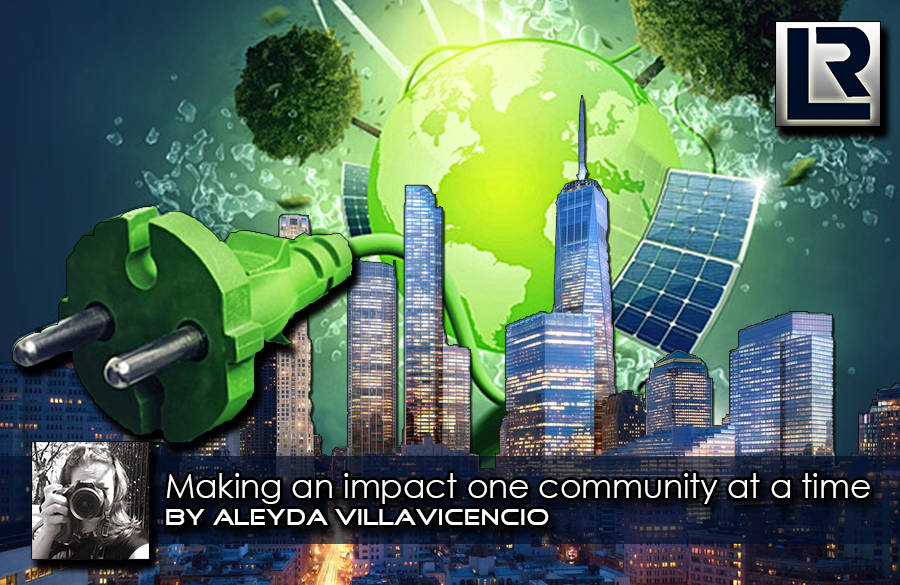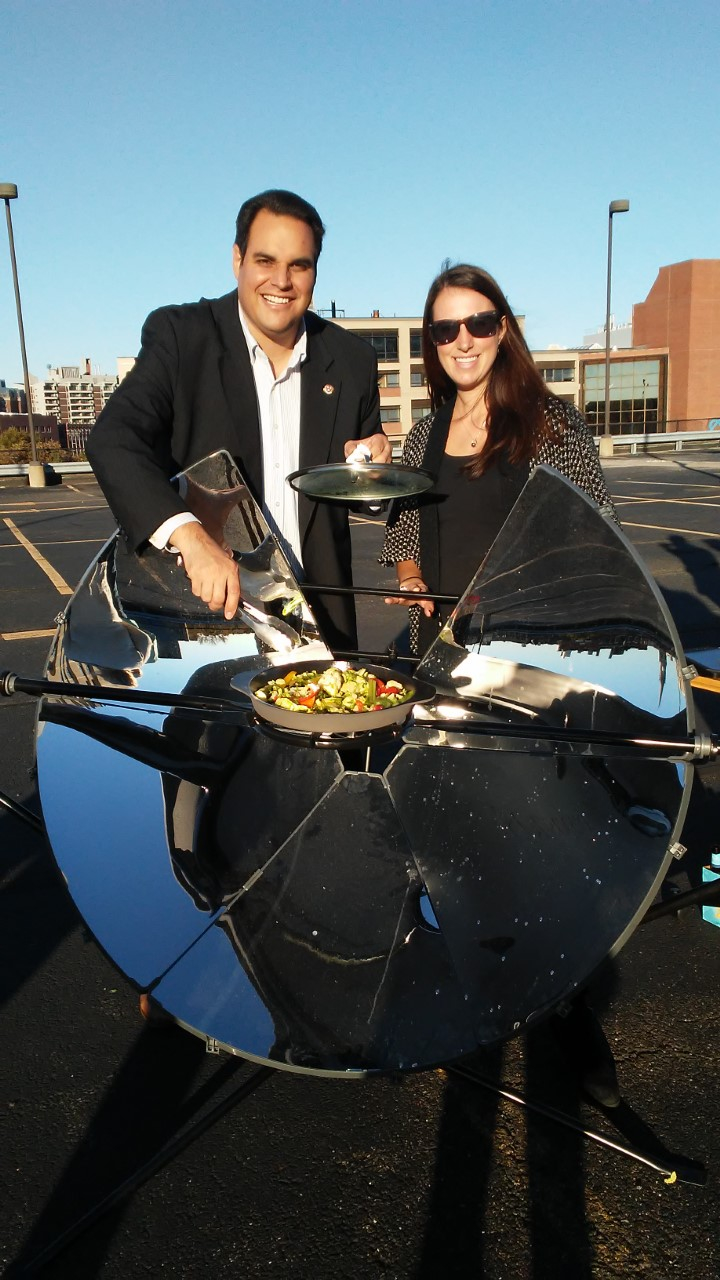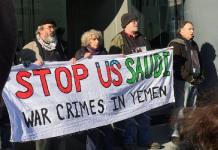Ramón Sánchez Piña with Nicole Bellisle, Program Coordinator of Sustainable Business Development, cooking in a solar stove that resulted from one of the multiple projects of the Leadership Program Applied to Renewable Energies and Energy Efficiency developed in Mexico during 2015 and 2016.
For the most part Ramon Sanchez’s education took place in Mexican public schools, in Los Mochis, Sinaloa. Only in high school, his mother, Yolanda Pina enrolled him in a private institution. On his senior year, Sanchez remembers, he was the top student in his class and everything pointed at him to win the “excellence scholarship,” granted to the student with the best grade point average of each class, to attend a private college. But in an unexpected turn of events, he says that year the scholarship was instead given to someone who had been part of the institution since the first grade.
“That was my first reality check on how politics work in Mexico,” said Sanchez, “where academic and financial support are not always granted on merit but on personal, or economic, influence.”
For Sanchez, corruption in Mexico is the largest obstacle to the country’s success. That year he applied for the scholarship directly at the Monterrey Institute of Technology and was able to enter college, but ever since that incident, he says, he is always mindful of how corruption, in its many forms, can make or break someone’s future.
“Imagine the shock of thinking you no longer have the opportunity to continue with your higher education because your scholarship was given to someone else, just like that,” he said.
Today, Sanchez, 43, is the director of the Sustainable Technologies and Health Program at the Harvard T.H. Chan School of Public Health.
Sanchez says school was an amusing part of his adolescence and describes those years as “critical” in his understanding of how society works in “the Mexican system.”
“I was no stranger to corruption when I was living in Mexico,” said Sanchez. “But I realized its outstanding levels when I got [to Harvard] and started working on projects that I thought could benefit my home country.”
In 2014 the Harvard T.H. Chan School of Public Health, in coordination with InTrust Global Investments and the Mexican Department of Energy, created a program to allow academics in Mexico develop tangible renewable energy projects in their communities.
In an unprecedented effort, the Applied Leadership Program in Renewable Energy and Energy Efficiency reached more than 300 professors from over 120 public universities in Mexico. More than 90 renewable energy projects and six patents resulted from this exertion.
“It took many setbacks to learn the recipe for success,” said Sanchez.
One such setback, he said, was a project intended to decrease the ecological footprint by 50 percent, saving 10 to 15 lives a year while cleaning the air. It was paid by international investors and had all the technical elements to support its functionality. Suddenly, the project reached a dead end because the local legislature asked for a bribe to let it operate. “That’s what we were dealing with,” said Sanchez.
To make things more complex, the Mexican people are suspicious of any development plans in which the government has any participation, and with good reason.
“It is difficult to trust the authorities,” said professor Blanca Gonzalez, administrative assistant of the Antitalaquia Institute of Technology, located in a rural community in one of Mexico’s poorest states; Hidalgo.
Gonzalez was one of the 300 professors invited to the Applied Leadership Program, and the Antitalaquia Institute was one of the public schools participating.
“Our school is the result of a promise made during a political campaign,” said Gonzalez. The authorities promised to build a higher education building in her community and they did. But when they received the keys to the building it was completely empty, she said.
“There were no tables, no chairs, nothing. I mean, we didn’t even have electricity!” said Gonzalez. “For over a year we had to buy diesel to have a light plant. There was nothing to work with and we still have almost nothing.”
Authorities recognize there are cases of corruption that need to be addressed, but disagree that this is an endemic problem.
Emilio Rabasa, the consul general of Mexico in New England, who has held various positions in public office, stressed that the government “is taking firm steps to fight this problem,” such as the recent approval by the Mexican Congress for the creation of the National Prosecution Office Against Corruption. “I can tell you things are moving in the right direction,” he said.
On the other hand, Sanchez said he believes the key to success was honesty and community involvement.
“You have to be transparent in the way you approach the people who will eventually benefit from the project,” he said. “If the locals don’t trust the outcome you will surely fail in the long run.”
But the ability to build trust and empathize with the people around him comes natural for Sanchez, said Guillermo Cedeno, program leader of Energy Efficiency and Carbon Mitigation Technologies at the Harvard T.C. Chan School of Public Health.
“Ramon is a person of impeccable ethics,” Cedeno said, “and has an exceptional ability to explain the potential results behind a scientific proposal, and that’s what people are looking for.”
Cedeno assisted in the organization and logistics of 18 different seminars given throughout Mexico.
“If it wasn’t for the corruption, I believe Ramon would be willing to spend more time and do more field work in Mexico,” he said. “But not being able to develop his full potential has made him choose to stay here.”
Sanchez’s involvement in Mexican matters extends to other groups of influence, like the Mexican Consulate Board of Advisors where he is an active member.
Rabasa recognized Sanchez’ extensive experience and willingness to help. “Ramon’s participation in our monthly sessions of the advisory group has many times turned into important networking events and project improvements,” and added, “He is undoubtedly the one Mexican who knows best Boston’s ecosystem of innovation and entrepreneurship in science and technology.”
In a series of interviews with Sanchez’s colleagues, each one spoke of his selflessness. “That eagerness to help in a selfless way is always palpable,” said Gonzalez
“How many people of Ramon’s academic and professional stature would agree to give a web lecture to your students for free?” asked Gonzalez rhetorically. “However, he has always been very open to share his time with us whenever we’ve asked.”
Giving back is part of his motivation, said Sanchez. “I’d like to think I’m making an impact. That I’m not in this world just to make money.”
“I could be working as a Wall Street analyst, or maybe go back to being a general manager at a manufacturing firm,” said Sanchez. “But what would I do there? Maybe provide a better future for me and my family, but that’d be it. Transforming small communities is like teaching the world how to fish, and that is how you really change things for everyone.”
About Me: https://about.me/aleyda.villavicencio
Twitter: @aleydag
FaceBook: Aleyda Villavicencio
Blog: http://milunitatucumana.blogspot.com










